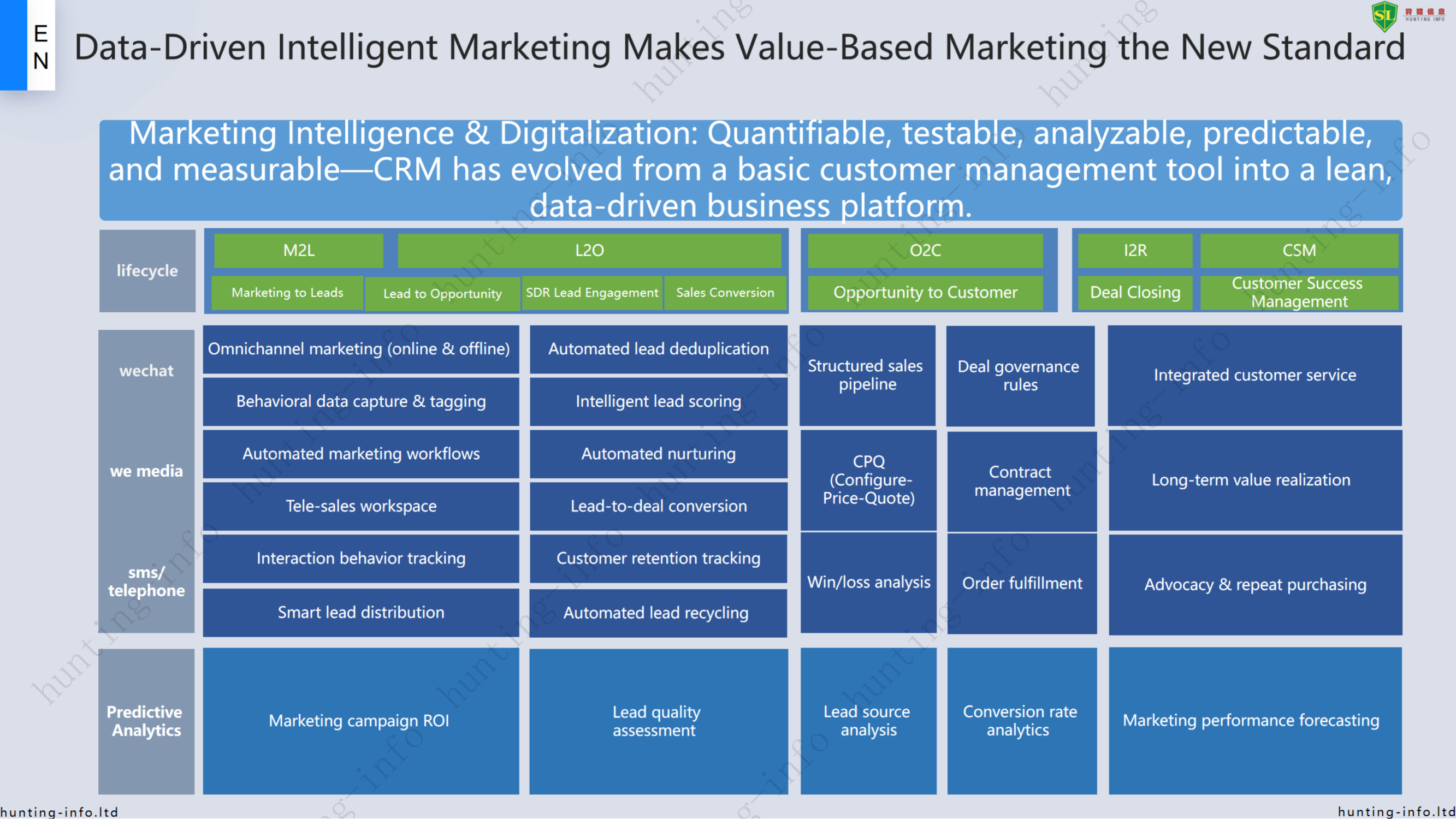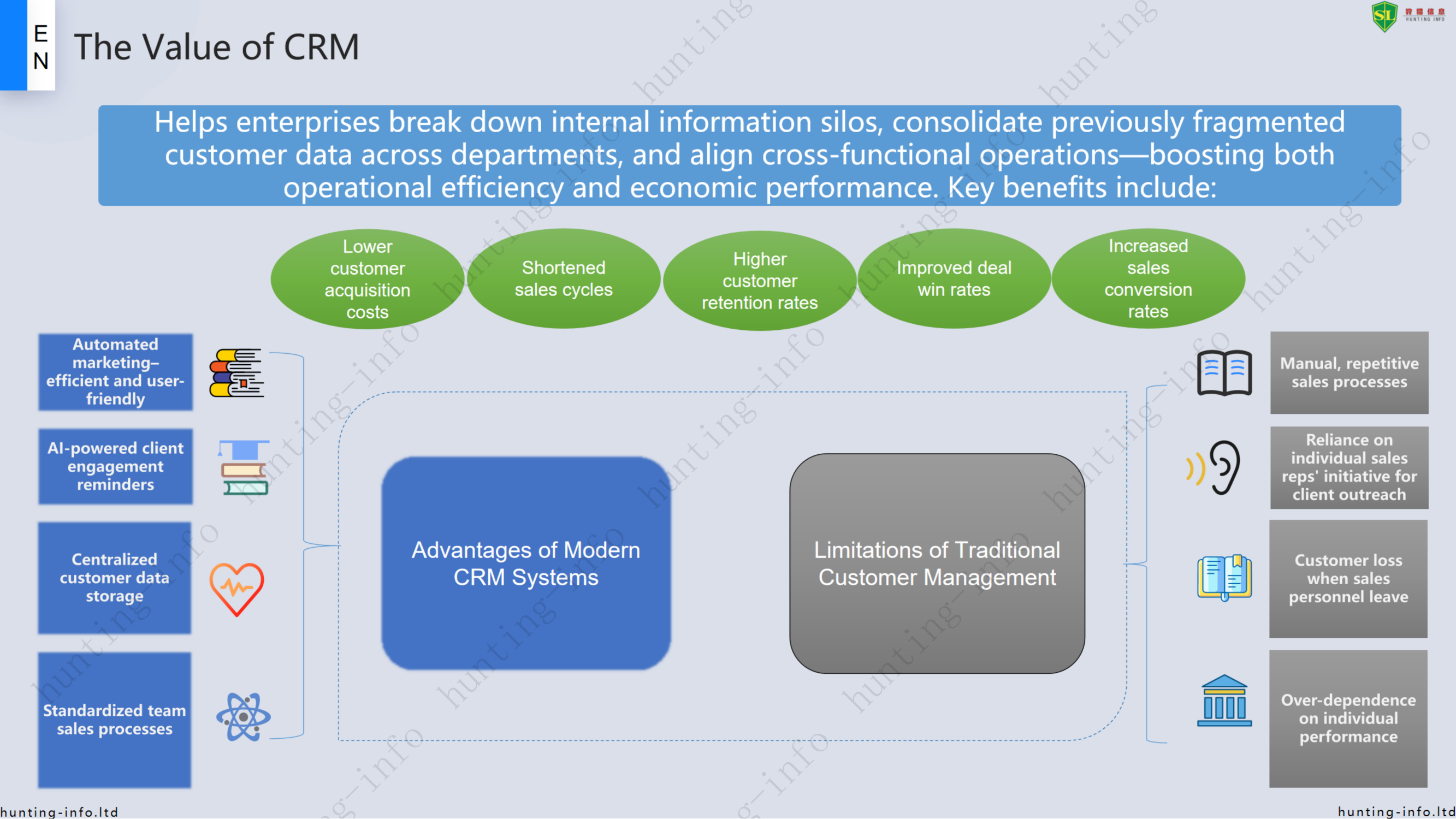Customer Relationship Management System (CRM) helps businesses streamline marketing, sales, and service processes, automate management, and maximize customer value and corporate revenue. We provide you with better service access, efficient 24/7 support, comprehensive service guarantees, and diverse customer success programs.
Why are you select our CRM product?
- expert guida : With expert guidance at every step, we help you accelerate your business value—whether through SaaS cloud services or on-premises deployment
- specialized deployment team: Our specialized implementation team works closely with clients to rapidly customize and deploy systems, along with tailored implementation and training plans
- lower cost : While enterprise management systems often cost millions, we strive to make advanced IT solutions accessible at a lower cost—whether via SaaS cloud services or independent source code deployment

The Transformation of Business Structures, Commercial Models, and Profit Mechanisms in Traditional Industries
-
Under the impact of internet technologies such as cloud computing, big data, mobile, and social media, traditional industries have undergone significant changes in their business structures, commercial models, and profit mechanisms—particularly in how enterprises interact with their customers.
-
The old methods of customer engagement and management have become inefficient and outdated, leading to common challenges such as:
- Lack of a Scientific and Rational Sales Resource Allocation & Customer Ownership Mechanism
- Internal conflicts between direct sales and channel partners, or even among sales reps within the same team, due to no effective conflict resolution process
- No unified standard for determining customer ownership, leading to multiple teams repeatedly approaching the same client, causing customer fatigue and dissatisfaction
- Absence of an Effective Follow-Up System, Leading to Poor Customer Retention
- Companies possess only basic customer data, with most deals being one-time transactions
- Customer resources are lost when sales reps leave, and when client information is transferred across departments or product lines, new personnel struggle to pick up the thread due to missing historical details, resulting in poor user experience
- Low Utilization of Customer Resources
- No complete lifecycle data prevents companies from maximizing customer value through repeat engagement
- Managers lack visibility into follow-up processes, leading to opaque operations and unexplained customer attrition
- Lack of a Scientific and Rational Sales Resource Allocation & Customer Ownership Mechanism
The Rise of Data-Driven Intelligent Marketing Makes Value-Based Marketing the New Standard
Marketing Intelligence & Digitalization: Quantifiable, testable, analyzable, predictable, and measurable—CRM has evolved from a basic customer management tool into a lean, data-driven business platform
- 1. M2L - Marketing to Leads
- Omnichannel marketing (online & offline)
- Behavioral data capture & tagging
- Automated marketing workflows
- 2. L2O - Lead to Opportunity
- Automated lead deduplication
- Intelligent lead scoring
- Automated nurturing
- 3. L2O - SDR Lead Engagement
- Tele-sales workspace
- Interaction behavior tracking
- Smart lead distribution
- 4. L2O - Sales Conversion
- Lead-to-deal conversion
- Customer retention tracking
- Automated lead recycling
- 5. O2C - Opportunity to Customer
- Structured sales pipeline
- CPQ (Configure-Price-Quote)
- Win/loss analysis
- 6. I2R - Deal Closing
- Deal governance rules
- Contract management
- Order fulfillment
- 7. CSM - Customer Success Management
- Integrated customer service
- Long-term value realization
- Advocacy & repeat purchasing

The Value of CRM:
Helps enterprises break down internal information silos, consolidate previously fragmented customer data across departments, and align cross-functional operations—boosting both operational efficiency and economic performance. Key benefits include:
- Lower customer acquisition costs
- Shortened sales cycles
- Higher customer retention rates
- Improved deal win rates
- Increased sales conversion rates
Limitations of Traditional Customer Management:
- Manual, repetitive sales processes
- Reliance on individual sales reps’ initiative for client outreach
- Customer loss when sales personnel leave
- Over-dependence on individual performance
Advantages of Modern CRM Systems:
- Automated marketing – efficient and user-friendly
- AI-powered client engagement reminders
- Centralized customer data storage
- Standardized team sales processes
